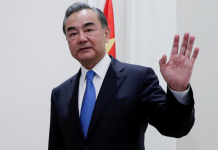
In the following table, 4Q costs are estimated using 4Q 2014 figures, multiplied by the percentage increase in costs in Q4 2015 from Q3 2015 (except for taxes and export custom’s duty, which are the average quarterly cost in 2015).

This rough guesstimate of Rosneft’s 4Q 2015 and 1Q 2016 performance suggests that the company will not generate sufficient cash to fund investment, dividends, and interest, and pay down debt.
From the Saudi Point of View
The Saudis and their Gulf Arab allies also have compelling reasons to consider production cuts to balance the global crude market and raise prices. They depend on revenues from crude and crude product exports as much as if not more so than the Russian government to fund government spending. Like the Russian government, they face serious domestic and international challenges—including wars and domestic tensions—that they counted on the export of crude and crude products to fund.
As a result of lost revenues and deteriorating budget numbers, the government are drawing on foreign currency and sovereign wealth resources, seeking to cut spending, including in such politically sensitive areas as subsidies for individuals and businesses, and to defer or cancel important investment projects (the UAE in recent days suspended the tender process for stage two of a project to build a 1,350 mile railroad from Kuwait the Indian Ocean along the Persian Gulf).
To raise revenue, they are introducing new taxes (such as on unoccupied land in Saudi cities) and contemplating asset sales (or which the Saudi plan to sell shares in Saudi Aramco and/or its downstream subsidiaries is a prime example).
OPEC dynamics are another important consideration. Other OPEC members—Venezuela, Algeria, Nigeria, Angola and Libya—repeatedly have called for output to be cut. In response, the Saudis have argued that OPEC cuts would be ineffective in the absence of simultaneous cuts from non-OPEC countries members. Were the Saudis and their Gulf Arab allies to reject a sincere Russian commitment to cut production, their credibility and authority within OPEC would suffer perhaps irreparable damage.
Also, for the Saudis, the plans to sell shares in Saudi Aramco and/or its downstream operations could play an important role. The price investors will be willing to pay for shares in these entities will depend on the value they place on the entities, and this value will depend on their assessment of the entities’ management, strategy, and prospects. If, for example, potential investors believe that management, at the behest of the Saudi government, will sacrifice growth, profits, and dividends to achieve Saudi foreign policy goals through low prices, investors’ interest might be tepid at best.
A Narrow Window of Opportunity for Russia for Coordinated Cuts
The Russians potentially enter any discussions with a weaker hand. The Saudis and their Gulf Arab allies probably can withstand lower prices longer than the Russians. Russia lacks the financial resources the Saudis and their Gulf Arab allies have at their disposal.
Their sovereign wealth funds and foreign currency reserves in absolute and per capita terms exceed Russia’s, the value of their government owned energy assets are greater than the value of the Russian government’s energy assets (which are already partially privatized), and Saudi Arabia and its Gulf Arab allies have access to international capital markets, whereas the Russian government, because of U.S. and EU sanctions, does not.
They also have the means to pressure Russia. The Saudis have spare capacity (according to the IEA have some ‘1.5~2.0 million barrels per day which they can bring on line within three months), while the Russians lack spare capacity. Finally, Russia’s major energy companies report quarterly results, whereas with a few exceptions, Saudi and Gulf Arab energy companies do not. Thus, the Saudis have access to critical Russian microeconomic financial data, whereas the Russians do not have such access to Saudi and Gulf Arab data.
Possibly, if the Russian government believes its hand is weaker, it might consider it advisable to reach agreement expeditiously. After all, the Russian government should take into account that if Russian data during the first quarter shows declines in output and exports, as comments from Russian government and company officials cited above suggest might happen, and Q1 2015 financial reports show intensifying financial pressures on Russian energy companies, Saudis and their Gulf Arab allies might be tempted to decide to maintain pressure on prices and force Russia to absorb the cuts necessary to balance the global crude markets.
(Republished with permission from oilprice.com)





